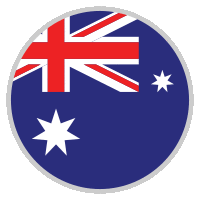Shop By
Catalog No.
Product Name
Application
Product Information
Product Citation
-
microtubule stabilizer
Sagopilone is a fully synthetic low-molecular-weight epothilone with potential antineoplastic activity.- Payal Ranaa, .et al. , Toxicol In Vitro, 2017, Dec;45(Pt 1):111-118 PMID: 28843493
-
microtubule destabilizing agents
Tubulysin family of secondary metabolites are originally isolated from the myxobacteria Archangium geophyra and Angiococcus disciformis. These compounds are potent microtubule destabilizing agents with IC50 values in the picomolar range against many cancer cell lines, including those with multidrug resistant properties. Tubulysins have limited therapeutic utility due to severe toxicity, so Tubulysins are ideal candidates to be incorporated into molecule drug conjugate (SMDC) delivery system. -
oral α and β tubulin inhibitor
VERU-111 is a novel, oral α and β tubulin inhibitor that blocks tubulin polymerization and is not a substrate for multi-drug resistance mechanisms. -
tubulin inhibitor
Tubulin inhibitor 1 is a tubulin inhibitor, inhibits tubulin polymerization. - Latrunculin A (LAT-A) is a toxin isolated from the red sea sponge Latrunculia magnifica, binds to actin monomers, inhibits polymerization of actin, with Kds of 0.1, 0.4, 4.7 μM and 0.19 μM for ATP-actin, ADP-Pi-actin, ADP-actin and G-actin, respectively.
- Tubulysin A(TubA) is a myxobacterial product that can function as an antiangiogenic agent in many in vitro assays; anti-microtubule, anti-mitotic, an apoptosis inducer, anticancer, anti-angiogenic, and antiproliferative.
-
β-tubulin polymerization inhibitor
Valecobulin (CKD516) is a valine prodrug of (S516) and a vascular disrupting agent (VDA). Valecobulin is a potent β-tubulin polymerization inhibitor with marked antitumor activity against murine and human solid tumors. -
tubulin polymerisation inhibitor
Lexibulin 2Hcl (CYT-997 2Hcl) is a potent tubulin polymerisation inhibitor with IC50 of 10-100 nM in cancer cell lines; with potent cytotoxic and vascular disrupting activity in vitro and in vivo. -
auristatin microtubule inhibitor
PF-06380101 (Aur0101), an auristatin microtubule inhibitor, is a cytotoxic Dolastatin 10 analogue. -
microtubule assembly and microtubule dynamics inhibitor
Tasidotin hydrochloride is a peptide analog of the antimitotic depsipeptide dolastatin 15, as an inhibitor of microtubule assembly and microtubule dynamics.








